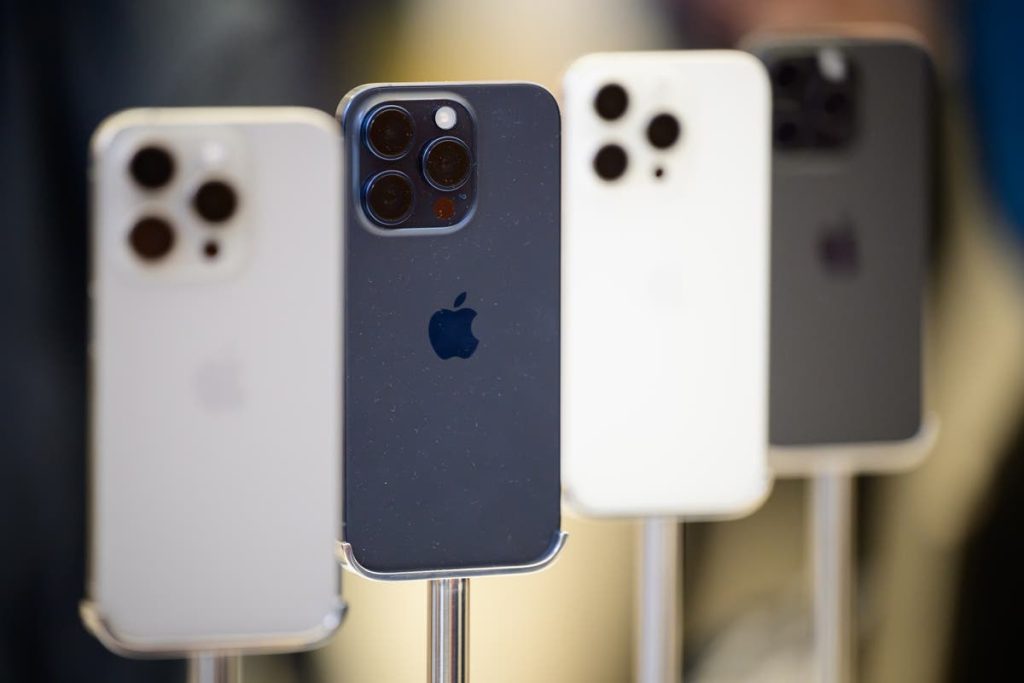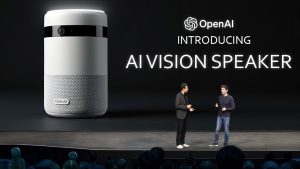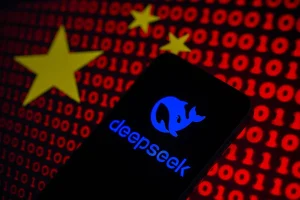Apple’s AI iPhone: A Bold Move in Uncertain Times

The AI iPhone is almost here. On Monday, executives will step onto a stage in California to unveil their AI plans. Everyone has been curious for the past 18 months. Now, we might finally get some answers.
Apple has always been about innovation. This time, however, they face a challenge. While some people are excited about AI, others are worried. The tech giant needs to convince people that AI can be both useful and safe.
Apple’s Big AI Reveal
The long-awaited AI iPhone is almost here. On Monday, the tech company’s executives will step onto a stage in California to unveil their AI plans. Everyone has been curious for the past 18 months. Now, we might finally get some answers.
Rumors suggest that Apple’s strategy is to weave AI, possibly branded as Apple Intelligence, into many of its products and operating systems. This might include new tools for summarizing large amounts of information, improved Siri functions, and controversial features like data processing on remote servers.
Consumer Interest in AI
The real question is whether people want these AI features. ChatGPT became very popular because it was free and fun. However, Apple has to convince people to buy their products with these new AI features. It’s a bit of a gamble.
The timing couldn’t be tougher. Eighteen months ago, AI excitement was at its peak. Nowadays, the promised revolution hasn’t happened, and people are skeptical about AI, often seeing it as a possible risk rather than a benefit.
Apple’s Principles and AI
Apple is known for its strong privacy principles, which might be challenging for its AI ambitions. AI needs a lot of data to work well, but Apple believes in minimizing data collection. This commitment to privacy could limit how powerful their AI can be.
Security is also a big deal for Apple. They prefer to keep everything secure, which might restrict some AI systems. Plus, they are very careful about their brand image, avoiding any technology that might generate inappropriate or politically sensitive content.
Even the company’s emphasis on secrecy was a hurdle. AI researchers, who often share their work publicly, were initially reluctant to join Apple. The company had to adjust and open up a bit to attract talent.
Apple’s AI Journey
Apple isn’t just getting into AI now. Their first AI-focused hardware was part of the iPhone 8 back in 2017. For years, iPhones have used ‘proactive’ suggestions to predict what app you might need next.
But back then, AI was seen as either too scary or too boring, so Apple didn’t promote it much. Even at last year’s developer conference, Apple avoided saying ‘artificial intelligence,’ sticking to ‘machine learning’ instead.
This cautious approach has meant they’ve often been behind in AI features. They underestimated the popularity of generative AI and are now rushing to catch up.
Apple’s Track Record with New Products
Apple’s strategy has often been to perfect existing product categories rather than be first. They weren’t the first to make smartphones, smartwatches, or VR headsets, but they became leaders in those areas over time.
The same might apply to AI. By allowing others to make initial mistakes, Apple can learn from them and refine their own products accordingly.
Recent examples from other companies show why this strategy can work. Google’s AI summaries suggested people eat rocks, and OpenAI had issues with a voice that sounded too much like Scarlett Johansson’s. Even Microsoft faced backlash over a controversial feature called Recall.
Apple’s Own Missteps
Despite their caution, Apple has made its own mistakes. A recent ad for the iPad Pro showed musical instruments being crushed, which upset many artists. The ad was meant to highlight how the iPad could do everything, but it backfired.
Although the ad wasn’t directly about AI, the backlash spilled over into conversations about technology replacing humans. Apple quickly pulled the ad and apologized, but it showed how easily things could go wrong.
This incident might have been a preview of the challenges Apple will face as it dives deeper into AI. The company is under a lot of pressure to get this right and avoid similar pitfalls.
What to Expect
At this year’s Worldwide Developers Conference (WWDC), Apple will finally explain its AI plans in detail. This event is expected to reveal how deeply AI will be integrated into Apple’s products and services.
Everyone is eager to see how Apple’s AI vision will unfold. With cautious optimism and a careful strategy, Apple aims to transform its products without compromising its core principles.
Looking Ahead
The upcoming AI iPhone could be a game-changer, but it’s a risky move. Apple’s commitment to privacy and security might limit some AI capabilities, but it also sets them apart from competitors.
As the tech world watches closely, Apple’s next steps will be crucial in determining the future of AI in everyday devices.
The upcoming launch of the AI iPhone is a significant milestone for Apple. This bold move aims to integrate AI deeply into everyday tech, maintaining Apple’s focus on privacy and security.
However, the success of this ambitious project remains uncertain, given the mixed public perception of AI. Apple’s cautious approach and emphasis on user experience will be key to its acceptance.
While exciting, the unveiling at WWDC will be closely watched, as it sets the stage for Apple’s AI-powered future. The stakes are high, and the world will be watching.





